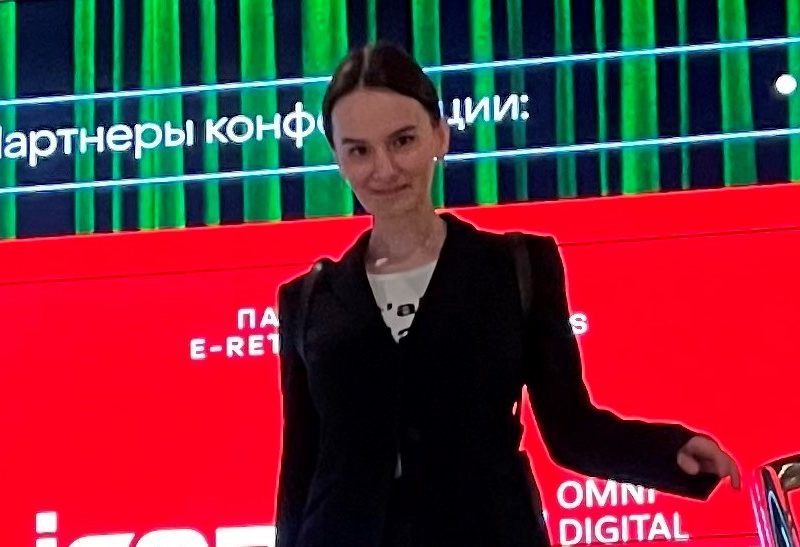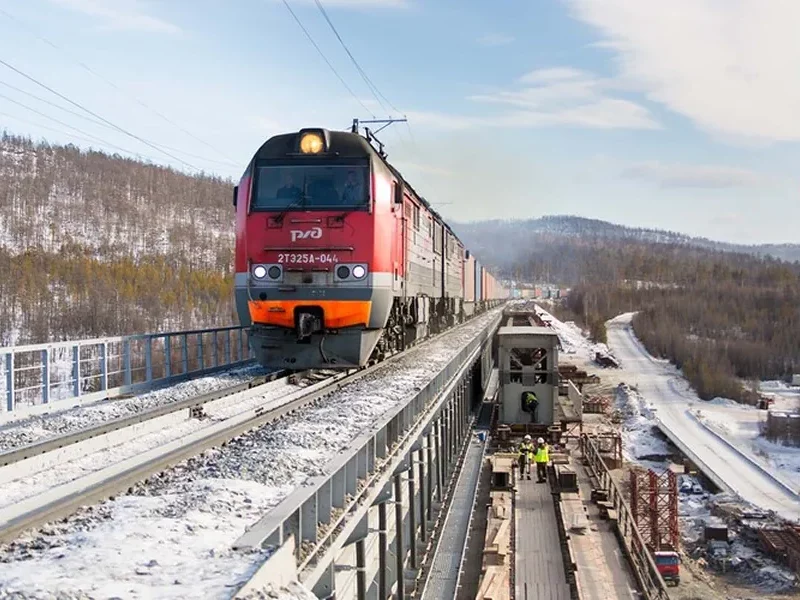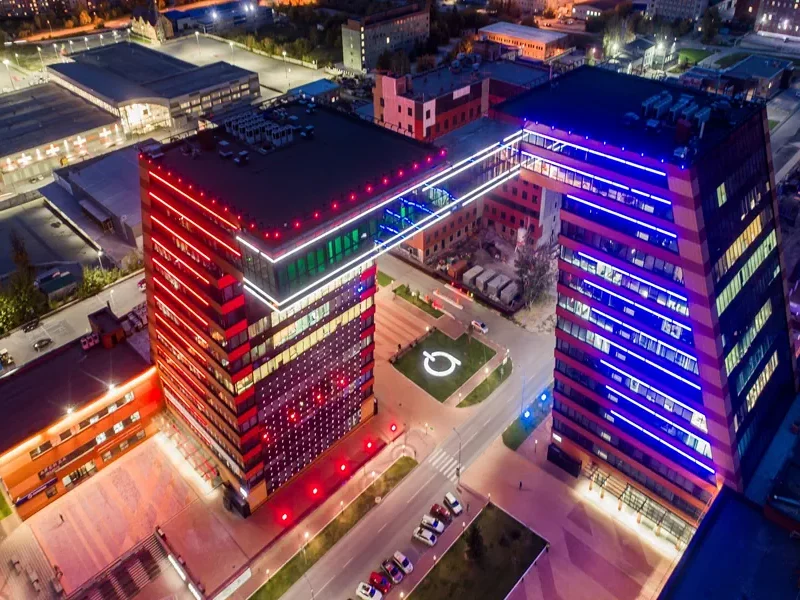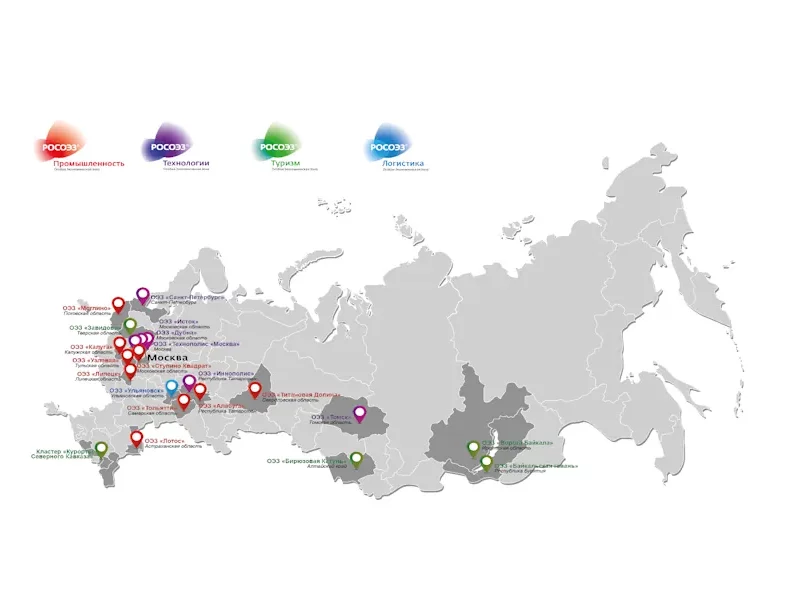Deceived shareholders are a problem that is not unique to Russia. They are also in Spain, the UK and even in Dubai. The Russian Federation embarked on the path of capitalism only 30 years ago, which partly justifies the presence of “childhood diseases” in the economy and legislation. But people who have been waiting for years for long-paid housing from this, as they say, are neither cold nor hot.
It cannot be said that the state is not interested in the issue at all. In recent years, quite effective steps have been taken at the federal level to prevent problematic long-term construction in the future. The regional authorities, in turn, are trying to resolve the situation with the already defrauded shareholders.
Deceived shareholders — how did the story of shared-equity construction begin?

Shared—equity construction is not a Russian invention. It was invented overseas, but quickly spread around the world and the residents of Russia were not the only ones that stepped on the rake, becoming deceived shareholders.
How has shared-equity construction developed in the world?
Shared-equity construction appeared in Argentina in the 80s of the XX century against the background of the financial and economic crisis and wild hyperinflation. Then President Raul Alfonsin suggested that citizens invest in the construction of future housing in order to save their salaries from instant depreciation.
The strategy brought positive results and the experience of Argentina was quickly adopted by other Latin American countries and even the United Kingdom. Almost immediately, the deceived shareholders appeared. In Chile, the experiment was generally successful, and insurers reimbursed the buyers whose companies went bankrupt. Yet the residents of El Salvador and Foggy Albion were forsaken — just like their fellow misfortunes somewhere in the suburbs.
How has shared-equity construction developed in Russia?
The history of shared-equity construction in the Russian Federation dates back to the notorious 90s. In the USSR, all real estate was state-owned and was built at the expense of the budget. After the collapse of the Union, the builders faced an alternative — to look for other options or vanish.
The way out was found — attracting citizens’ funds. In the absence of an appropriate regulatory framework, for the first time, EPA was concluded on a general basis. There were a wide array of different variations of names for them — an investment agreement, a cession, a contract, etc.
Nonetheless, the general wording was about the same — a person partially finances the construction of an apartment building, in return receiving living space in a finished object.
Litigation began very quickly in connection with the developers’ failure to fulfill their obligations. Deceived shareholders filed lawsuits en masse. When reviewing them, judges could rely either on the Civil Code or on Federal Law No. 2300-1 of 07.02.1992 “On Consumer Rights Protection”. Moreover, the Consumer Rights Protection Law guaranteed people greater security, but the scope of its application did not include investment activities.
The problems required legislative solutions, and in 2005 Federal Law No. 214 of 12/30/2004 “On Participation in the Shared Construction of Apartment Buildings and Other Real Estate objects and on Amendments to Certain Legislative Acts of the Russian Federation” was adopted. The law, alas, may well be called infamous.
Deceived shareholders and federal law 214-FZ — has the law solved the problems?

In the absence of a regulatory framework for the shared-equity construction as such, fraudulent schemes have flourished. The main one was the so-called “double sales”. The meaning is clear from the name — since the contracts concluded with citizens were not recorded, the developer sold the same apartment to two different people and often it was not limited to this — there were both “triple” and “quadruple” sales.
The adopted law eliminated the possibility of such deception by obliging developers to transfer concluded contracts for registration to a state body — now the Federal Register. However, Federal Law No. 214 did not solve all the problems in the construction sector.
Perhaps the reason for this is the lack of relevant experience among Russian legislators. Or the regulatory act was initially “sharpened” to eliminate only existing fraudulent schemes. One way or another, Federal Law No. 214 could not prevent the emergence of the problem of deceived shareholders, which quickly went beyond the scope of court proceedings and acquired an acute social character.
Changes in legislation
The pace of construction of new housing was increasing, and the number of deceived shareholders was growing. Seeing the problem, in 2014 the Ministry of Construction of Russia proposed to abolish the existing scheme and transfer the financing of housing construction to credit rails.
However, with high rates on bank loans, such a decision would provoke a deep crisis in the industry. After all, in Russia as a whole at that time, about 50% of housing was being built on citizens’ money, and the annual amount of the EPA market exceeded 2 trillion rubles. The project was never implemented. The number of defrauded shareholders continued to increase.
Criminal Code
Instead, it was decided to amend the legislation. First, Article 200.3 of the Criminal Code of the Russian Federation established criminal liability for attracting finance with violations of the law on shared-equity construction.
However, the wording in the article was vague. The developer may face criminal prosecution for any purely formal violation of Federal Law No. 214. Simultaneously, there is no penalty for misuse of legally collected money.
As well as there is no responsibility for officials who illegally issued a construction permit, approved a “crooked” project or turned a blind eye to self-construction. But a considerable number of deceived shareholders appear just for these reasons.
The administration may issue a construction permit in the wrong place and it will come up when most of the apartments have already been sold to new pleased settlers. Or the house begins to be built, and then it turns out that the permissible number of floors has been exceeded in the project. Sometimes they manage to build a huge “human anthill” on a piece of land with permitted use “for housing and communal services” and the next portion of the deceived shareholders is ready.
Amendments to the Law on Shared-Equity Construction 214-FZ
In 2016, significant changes were made to the legislation regulating shared-equity construction. It is worth considering them in detail.
Increase in the authorized capital of the developer. This measure has never guaranteed the reliability of the company. As capital, you can deposit credit funds or money from the previous object. Thus, this requirement is more likely to lead to an increase in the cost of housing than to guarantee the absence of deceived shareholders.
- A surety agreement, if the authorized capital is less than necessary. Based on paragraph 1, this is unlikely to be necessary.
- Mandatory liability insurance of the developer. This requirement does not make much sense, since it is canceled from the moment the compensation fund begins functioning.
- Escrow accounts. This requirement assumes that people’s money will be safer in the bank than with the developer. The statement is controversial — for example, over the period from 2013 to 2018, 400 banks were deprived of licenses in the Russian Federation.
- Compliance with special rules approved by the Government of the Russian Federation. The essential conditions of the DDA and the obligations of the parties are already regulated in detail by Federal Law No. 214.
- The conclusion of the Construction Supervision of the region on the compliance of the project and the developer himself with the mandatory requirements. A good measure, but it puts an administrative barrier not only for unscrupulous market participants, but also for quite decent developers. The approved form of the project declaration, containing 79 notes, is extremely complex, confusing and requires serious processing.
- The need to register a contract of participation in shared construction. This requirement is initially provided for by the norms of Federal Law No. 214.
- Contributions to the compensation fund. This is perhaps the most effective innovation. With proper contributions and competent organization, the fund will be able to “cure” the construction industry of the Russian Federation from the appearance of deceived shareholders in the future.
Unfortunately, these changes, despite their unconditional benefit, also did not put an end to the fraud of developers.
The fact is that according to Federal Law No. 214, money can be attracted in three ways:
- on the basis of the EPA (equity participation agreement);
- within the framework of the formation of a housing and construction or other cooperative;
- by issuing housing certificates by the developer.
The first of these options was initially strictly regulated and rarely caused the appearance of deceived shareholders. However, the changes in legislation described above affected him, ignoring the other two.
Perhaps the reason is that the amendments were adopted hastily and a proper analysis of the situation was not carried out during their formation. Developers also often ignore the requirements of Federal Law No. 214 and continue to raise funds in ways that are prohibited.
Deceived shareholders — other support measures
So, the final solution of the problem by legislative means was not “danced out” in any way. Therefore, in 2017, a Fund for the Protection of the Rights of Citizens participating in shared-equity construction was formed, which was popularly called the “Fund of Deceived Shareholders”.
His powers include collecting the very compensation contributions that were planned by legislative changes from 2016. Now developers are obliged to pay 1.2% of the amount of each concluded EPA there. The Fund implements a full range of measures to support defrauded shareholders:
- decides on the bankruptcy of the “failed” developer and initiates the procedure itself;
- conducts an examination and evaluation of the living space;
- solves problems with the restoration of the rights of defrauded shareholders by monetary compensation or completion of apartment buildings;
- provides advisory support and assistance in mortgage refinancing;
- maintains unified registers of developers and problematic objects.
In addition to the federal fund, regional ones have been opened that carry out local activities. They directly organize the completion of problem houses and transfer the long-awaited apartments to new settlers. Registers of defrauded shareholders are also maintained at the regional level — local authorities are responsible for this.
The Fund really defends the rights of deceived shareholders — for example, in 2020, 14 thousand affected citizens in 31 regions of the Russian Federation were given compensation for unfinished housing. Moreover, in 8 regions, the payout rate ranged from 98 to 100%. In the same year, 367 problem houses were completed, and 33500 citizens received their apartments.
Recent legislative innovations
In July 2020, the State Duma adopted the next package of amendments to Federal Law No. 214 and other regulations:
- qualification requirements for arbitration managers dealing with bankruptcy processes of construction companies have been increased;
- compensation is issued regardless of whether the developer paid contributions to the fund or evaded it;
- the amount of payment to defrauded shareholders is determined by the price level taken no later than three months from the date of transfer;
- the mechanism for the return of maternity capital funds involved in the construction of a problematic facility has been determined;
- The fund of deceived shareholders is vested with the powers of the developer;
- mandatory requirements have been introduced for companies participating in the fund’s tenders for the completion of houses.
The amendments also contain a number of measures designed to remove unnecessary bureaucratic obstacles to diligent developers. As you can see, the state is quite closely engaged in the problems of the construction industry and deceived shareholders, including.
Deceived shareholders — the situation by region

Among all regions of the country, the Moscow and Leningrad regions can “boast” about the largest number of deceived shareholders. It is easy to explain. Regions are adjacent to cities of federal significance, where mass urbanization is directed. Living in the region, you can go to work in the city. At the same time, housing is much cheaper than in the metropolis itself.
Therefore, both the main and Northern capitals are surrounded by a dense wall of high-rise buildings along the borders. Construction is going so rapidly that Moscow has already had to expand its borders. St. Petersburg has not done this yet, although residents of the surrounding areas (Kudrovo, Murino, Bugry, etc.) actively insist on this.
It is not surprising that such rich “lands” turned the developers’ heads, and they seized on tasks that they could not eventually master. It cannot be ruled out that someone decided to simply illegally enrich themselves. In any case, the problem of defrauded shareholders of the Leningrad and Moscow regions is still far from being resolved.
Deceived shareholders in the Leningrad region
In 2007, the then governor of St. Petersburg, Valentina Matvienko, signed an order banning sealing development within the city. Deprived of a “tasty morsel”, developers turned their gaze to the districts of the region closest to the Northern capital.
And it began. With rare exceptions, building permits on the territory of municipalities are issued by local governments — in accordance with Article 51 of the Urban Planning Code of the Russian Federation. The regional authorities, even if they want to, cannot do anything about it. Stone jungles began to grow rapidly around St. Petersburg, mostly at the expense of citizens who took part under an equity participation agreement (DDU).
The deceived shareholders of Petrostroy
In addition to the dubious level of comfort and the lack of social infrastructure in the new areas, the number of unfinished buildings began to grow rapidly. The Petrostroy company especially “distinguished itself”. It has 8 unfinished residential complexes in the Leningrad region, in which 4.5 thousand people should receive housing. Almost 1400 deceived shareholders of the Lomonosov residential complex in the Petrodvorets district of St. Petersburg are also waiting for their apartments.
At the end of March 2021, Petrostroy CEO Dmitry Ipatov was detained. Several criminal cases were initiated against him at once for embezzlement of citizens’ funds in the amount of no less than 5.2 billion rubles.
The government of the Leningrad region does not abandon its affected residents. The news is joyful for the deceived shareholders — the region (as well as the Moscow region) was among those who fulfilled the quarterly plan to solve the problems of citizens affected by fraud. Active work is underway to organize the completion of residential complexes “Materik”, “Chisty Ruchei” and “Severny Vals”. It’s slow, but it’s moving.
The problem is that in addition to directly completing houses, it is necessary to solve issues with the connection of communications, laying roads and landscaping of adjacent territories. Without this, it is impossible to put the Residential Complex into operation and hand over the keys to people. Nevertheless, by the end of the second quarter of 2022, it is planned to put into operation almost 3,200 apartments.
In general, the Leningrad region currently ranks second in terms of the number of unfinished apartment buildings (205 houses) and the Moscow region is leading in this sad rating.
Deceived shareholders in the Moscow region
There is nothing surprising in the fact that the densest construction is going on around the capital. Now those who see the MKAD from the window can consider themselves almost residents of the center of Moscow. However, unfortunately, this type is still inaccessible to a large number of deceived shareholders.
At the beginning of November 2021, there were more than 700 problem houses in the Moscow region. The area of housing not received by people is almost 3.5 million square meters. 24 thousand affected citizens.
Deceived shareholders in the Moscow region districts
Among the urban districts of the Moscow region, Solnechnogorsk can “boast” of a record number of long-term buildings (125 houses). Sabidom, which was declared bankrupt in 2019, has the largest number of “tails” for the completion of facilities.
The company has 71 unfinished townhouses in the “Bely Gorod ” microdistrict. The regional authorities have already found a way out — the housing will be completed by the Urban Group and Ingrad companies. In Chekhov, 64 houses of the Melior Stroy company and 15 objects of the Alternative Construction Solutions company are awaiting completion.
Odintsovo, Losino-Petrovsky, Istra and Bogorodsky city districts are also recognized as the record holders for the number of long-term construction projects (from 48 and above). The “calmest” districts in terms of the number of deceived shareholders are Orekhovo—Zuevsky, Zhukovsky and Reutovsky. In each of them, only 1 house needs to be completed.
In June 2021, the governor of the Moscow Region, Andrey Vorobyov, announced his intention to completely close the problem of defrauded shareholders in 2023. By the end of this year, it is planned to reduce the number of waiting apartments to 19-20 thousand people.
Additionally, the governor said that the region is actively fighting the lack of infrastructure in newly created areas. Like the Leningrad Region, the region is reaping the benefits of construction permits issued without taking into account the “social sphere”.
Judging by the total number of problem houses in the Moscow region, the regional government has taken on a non-trivial task. However, more than half of the facilities are already being actively completed, so we can expect that the deadlines promised by the governor will be met.
Will the deceived shareholders receive housing?
In general, the previous scheme of shared-equity construction looked attractive from the point of view of business development in the country. A company could take up the case without much start—up capital as it was provided by buyers.
Still for the citizens, everything was not so cloudless. The construction of each residential complex turned into a kind of “startup”, when a developer raises funds to implement a certain project (building a house) with subsequent payment of dividends (providing apartments).
Currently, when buyers’ funds are frozen in escrow accounts and the developer gets access to them only after the house is put into operation, the situation has changed.
Now the company needs to have a substantial sum “behind its back” in order to start building a house, as they would not want to create a construction company from scratch without having serious funds.
Is it good or bad? Hard to say. Business development is extremely important for the country’s economy — yet it must be an honest business. Housing is a sore point for many citizens of the Russian Federation and cashing in on the needy, leaving them homeless is the last thing we should do.
Therefore, it is pleasant to realize that the state does not abandon the affected people to the mercy of fate. Seeking not only to help out those who are already in trouble, but also do not allow them to appear in the future. Even if everything does not always work out immediately and perfectly — no one is immune from making mistakes.
Nevertheless, the situation is improving. It is very possible that in the near future the last deceived shareholder will finally become a happy homeowner. As well as, all who wanted to enrich themselves dishonestly will suffer the deserved punishment.
What about long-term construction? Is it possible to collect a penalty on the EPA with the developer?
Deceived shareholders — the situation is clear. We reviewed it above. But what about those who bought an apartment under the DDA, but the deadline for the house was delayed for a year, two or several years?
Here, 214-FZ stands up for the protection of participants in shared-equity construction, according to which the shareholder has every right to collect a penalty from the developer for the missed deadline for the delivery of the house.
This is correct, since the citizen:
- spent money on rental housing;
- paid interest on the loan;
- suffered moral damage.
But not everything is so simple with the collection of an EPA penalty . It is unlikely that the developer will agree to reimburse your losses out of his own pocket “without a fight”.
To recover a penalty under an equity participation agreement, it is necessary to competently draw up a statement of claim to the court, taking into account all the requirements and collect evidence, win the trial and monitor the execution of the court decision.
Global problems arise in the process:
- A person without legal education and practice simply will not be able to make a statement of claim that the court will accept. Additionally, the collection of evidence can turn into a years-long quest for a citizen.
- Lawyers only charge at least 15-20 thousand rubles for drafting a statement of claim. However, this is just the application.Then the collection of documents, participation in court, etc.
Hence the following situations arise:
- the price of the lawyer’s services is more than the size of the penalty under the DDA;
- a person, simply, does not have money for a lawyer. There are no lawyers who will spend time and effort to solve your problems for free
- no one guarantees 100% recovery of the penalty for DDU;
- unscrupulous lawyers pull out money, but do not give a result.
As a result, it is possible to collect a penalty from the developer, but not everything is effortless. Thus, our team decided to tackle this problem.

APEXCOM’s IT specialists and lawyers have developed a unique application “APEXCOM-BOT” for collecting the EPA penalty, thanks to which it became possible to recover any amount of the penalty.
The application automates the work of lawyers. And the shareholder does not even need to leave the house. All actions are performed in the application.
APEXCOM-BOT is a free application that has passed all the checks and is available on the official Google Play and AppStore stores.
Download the application for free and start the process of collecting a penalty from the developer without any investment:
Разрабатываем Стратегии для собственников бизнеса в целях оптимизации группы компаний, решения нестандартных задач и продажи активов. Оказываем услуги по сопровождению сделок M&A, управлению непрофильными активами и проектами в целом.
-
Consulting company APEXCOMhttps://apexcom.net/en/author/apex223378
-
Consulting company APEXCOMhttps://apexcom.net/en/author/apex223378
-
Consulting company APEXCOMhttps://apexcom.net/en/author/apex223378
-
Consulting company APEXCOMhttps://apexcom.net/en/author/apex223378














